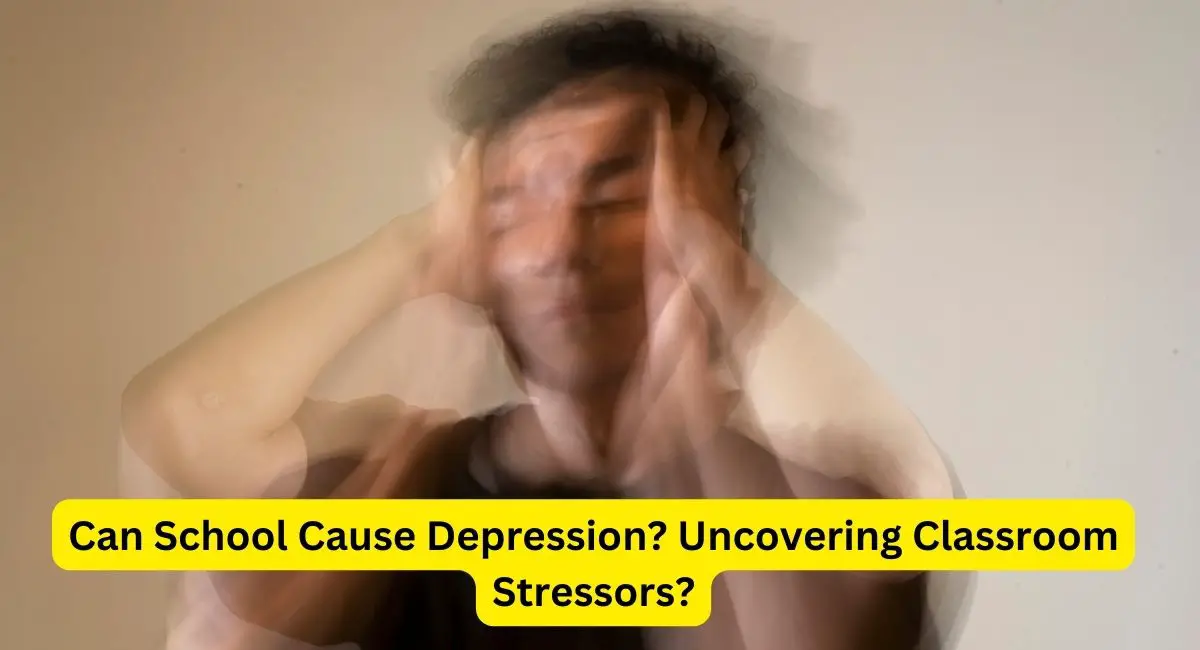Yes, school can cause depression in some students due to academic pressures and social stressors. The environment and expectations can overwhelm individuals.
School-related depression arises from a complex blend of social interactions, academic challenges, and personal or family issues faced by students. The high demand for success and the fear of failure can trigger immense stress, leading to feelings of inadequacy and hopelessness.
Struggling to keep up with homework, exams, and the expectations to excel, students may feel intense pressure that detrimentally impacts their mental health. Peer relationships also play a critical role; bullying, social isolation, or difficulties in fitting in can contribute to depressive feelings. For adolescents, the school environment is where they spend most of their waking hours, making it a significant influence on their psychological well-being. Educators, parents, and policymakers recognize the importance of supporting students’ mental health to create a more nurturing and less stressful educational atmosphere.
School As A Stressor
School can be a big reason for young minds to feel weighed down. Hard classes and lots of homework create tons of pressure. Students want to get good grades. Some kids find this very hard. This can lead to feeling sad.
Friends are important in school. Sometimes, making friends is not easy. Feeling alone or bullied can make school hard. It’s tough when you feel like you don’t fit in. This can make a student feel very down.

Credit: www.bu.edu
Physical And Emotional Effects
School can be tough on both the body and the mind. Pressure from homework, exams, and social situations can lead to significant stress. This stress can show up in many ways. Some students might have stomach aches or headaches. Others may feel tired all the time or have trouble sleeping.
Stress can make it hard to concentrate or feel happy at school. Feeling sad or hopeless might also happen. These signs can mean a student is struggling. Too much stress can lead to depression. It is essential to spot the symptoms early. Parents, teachers, and friends should watch for changes. Such changes can be in mood or how one acts.
Student Perspectives
Many students speak up about the stress they face in school. Tests and homework can lead to worry. Some kids feel very sad because of this. They may struggle to keep up with schoolwork.
School should be a happy place. But for some, it’s not.
- Projects and grades can scare students.
- Long hours of study leave little time for fun.
- Trying to get perfect marks can hurt their happiness.
Teachers and friends should listen and help. Support and understanding are key. They can make school better for everyone. A happy school can create happy minds.

Credit: asuevents.asu.edu
Role Of Educators And Institutions
Schools play a crucial role in children’s mental health. Educators and institutions can help prevent depression. They do this by creating supportive and inclusive environments for all students. Emotional support is key.
A positive school climate is vital. This means a place where everyone feels safe and valued. Schools can achieve this through clear policies and practices. These should focus on inclusivity and respect. Anti-bullying programs are essential.
Good relationships between staff and students are important. Teachers must be approachable and understanding. They need training to spot signs of distress. It is crucial to act early if a student is struggling. Proper referrals to counseling can then follow.
Finally, policy interventions should aim at well-being. Schools need resources for mental health. This ensures they can provide the right support. Making sure every child feels heard and seen is the target. All students deserve a supportive learning space.
Strategies And Solutions
Mindfulness and well-being programs play a key role in student health. Schools now integrate these into daily routines. Techniques like deep breathing, yoga, and meditation help kids relax. Regular practice can lead to less stress and improved focus in class. Both teachers and students benefit from a calmer learning environment.
Parental and community involvement also boosts student morale. With adults taking part, kids feel supported both at home and in school. Activities like family workshops or school events build a strong support network. This shared effort helps address concerns before they grow. Together, families and schools create a safer space for children’s growth.

Credit: www.tryhealium.com
Frequently Asked Questions For Can School Cause Depression
Is School Draining Your Mental Health?
School can significantly impact mental health, leading to stress, anxiety, and exhaustion. Balancing academic demands with personal life often contributes to this strain. Seek professional help if school-related pressure becomes overwhelming.
Can School Cause Mental Health Issues?
Yes, school can contribute to mental health issues due to stress, academic pressure, bullying, and social anxiety.
Can Academics Cause Depression?
Yes, academic pressures can contribute to depression in some individuals due to stress, high expectations, and workload. It’s important to seek support if experiencing symptoms.
Is It Normal To Not Want To Go To School?
Yes, it’s normal to sometimes not want to go to school due to various personal or academic reasons. Addressing concerns and seeking support can help.
Conclusion
The link between school stress and depression is undeniable. Students, parents, and educators must collaborate, forging paths to healthier school environments. Initiatives promoting mental wellness are paramount. Remember, it’s vital to seek support if school pressures overwhelm you. Striving for balance is key; your well-being matters.

